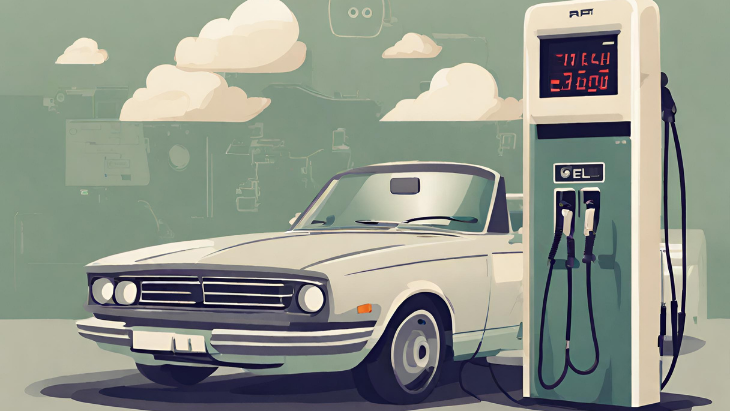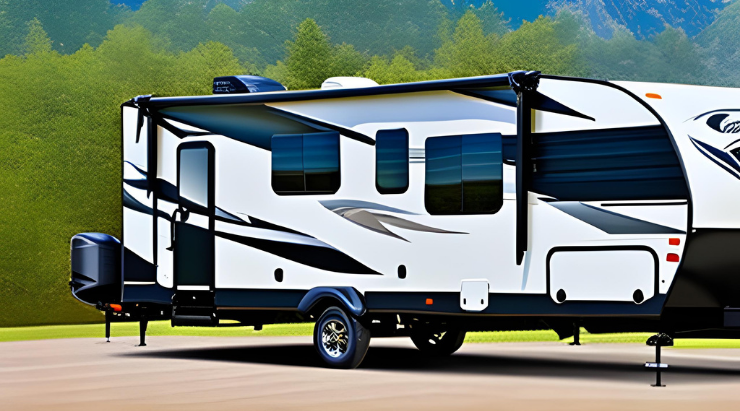Fuel consumption is an important factor to consider when buying a car or when trying to save money on gas. There are a few different ways to calculate your car’s fuel consumption, and the best method for you will depend on your needs. In this article, we will discuss two simple methods for calculating fuel consumption, as well as some tips for improving your car’s fuel efficiency.
Fuel consumption
Fuel consumption is the amount of fuel a vehicle uses to travel a certain distance. It is measured in liters per 100 kilometers (L/100 km) or miles per gallon (mpg).
Fuel consumption is important for several reasons. First, it can affect the environment. Vehicles that consume more fuel emit more pollutants into the air. Second, fuel consumption can affect your wallet. Vehicles that consume more fuel cost more to operate. Third, fuel consumption can affect your driving experience. Vehicles that consume more fuel may have less power or range.
**There are a number of things you can do to improve your vehicle’s fuel consumption. These include:
- **Drive smoothly and avoid sudden acceleration or braking.
- **Maintain your vehicle regularly.
- **Inflate your tires to the recommended pressure.
- **Remove unnecessary weight from your vehicle.
- **Drive at a constant speed.
- **Avoid driving in stop-and-go traffic.
- **Use cruise control on the highway.
- Consider buying a fuel-efficient vehicle.
By following these tips, you can help to improve your vehicle’s fuel consumption and save money on fuel costs.
Here are some additional details about fuel consumption:
-
- **Fuel consumption is typically measured in liters per 100 kilometers (L/100 km). This is the most common measurement system in Europe and other parts of the world.
- **In the United States, fuel consumption is typically measured in miles per gallon (mpg).
- **Fuel consumption can vary depending on a number of factors, including the vehicle’s weight, engine size, and transmission type.
- **Fuel consumption can also be affected by driving conditions, such as weather and traffic.
- The EPA (Environmental Protection Agency) publishes fuel economy ratings for all new vehicles sold in the United States. These ratings can be used to compare the fuel efficiency of different vehicles.
-
Calculate fuel consumption
-
How to Calculate Fuel Consumption
Fuel consumption is the amount of fuel a vehicle uses to travel a certain distance. It is an important factor to consider when buying a car or when trying to save money on gas. There are a few different ways to calculate fuel consumption, and the best method for you will depend on your needs.
Two simple methods for calculating fuel consumption are:
- The manual method: This method requires you to track the amount of fuel you use and the distance you travel. To do this, you will need to reset the odometer of your car before you fill up with gas. Then, after you fill up, record the odometer reading and the amount of gas you put in your car. Divide the amount of gas you used by the distance you traveled to get your fuel consumption.
The digital method: Many cars have a built-in fuel consumption calculator. To use this method, simply reset the fuel consumption calculator and drive your car for a set distance. Then, check the fuel consumption calculator to see your fuel consumption.
Here are the steps for calculating fuel consumption using the manual method:
- Reset the odometer of your car before you fill up with gas.
- Fill up your car with gas.
- Record the odometer reading and the amount of gas you put in your car.
- Divide the amount of gas you used by the distance you traveled.
Here are the steps for calculating fuel consumption using the digital method:
- Reset the fuel consumption calculator.
- Drive your car for a set distance.
- Check the fuel consumption calculator to see your fuel consumption.
Tips for improving fuel consumption:
- Drive smoothly and avoid sudden acceleration or braking.
- Maintain your car regularly.
- Inflate your tires to the recommended pressure.
- Remove unnecessary weight from your car.
- Drive at a constant speed.
- Avoid driving in stop-and-go traffic.
- Use cruise control on the highway.
- Consider buying a fuel-efficient vehicle.
By following these tips, you can help to improve your car’s fuel consumption and save money on fuel costs.
-
Car fuel consumption
-
Car fuel consumption is the amount of fuel a car uses to travel a certain distance. It is measured in liters per 100 kilometers (L/100 km) or miles per gallon (mpg).
Fuel consumption is an important factor to consider when buying a car or when trying to save money on gas. Cars with higher fuel consumption will cost more to operate in the long run.
There are a number of things you can do to improve your car’s fuel consumption. These include:
- Drive smoothly and avoid sudden acceleration or braking.
- Maintain your car regularly.
- Inflate your tires to the recommended pressure.
- Remove unnecessary weight from your car.
- Drive at a constant speed.
- Avoid driving in stop-and-go traffic.
- Use cruise control on the highway.
- Consider buying a fuel-efficient vehicle.
By following these tips, you can help to improve your car’s fuel consumption and save money on fuel costs.
Here are some additional details about car fuel consumption:
- Fuel consumption is typically measured in liters per 100 kilometers (L/100 km). This is the most common measurement system in Europe and other parts of the world.
- In the United States, fuel consumption is typically measured in miles per gallon (mpg).
- Fuel consumption can vary depending on a number of factors, including the car’s weight, engine size, and transmission type.
- Fuel consumption can also be affected by driving conditions, such as weather and traffic.
- The EPA (Environmental Protection Agency) publishes fuel economy ratings for all new vehicles sold in the United States. These ratings can be used to compare the fuel efficiency of different vehicles.
Conclusion
Car fuel consumption is an important factor to consider when buying a car or when trying to save money on gas. By following the tips above, you can help to improve your car’s fuel consumption and save money on fuel costs.
-
How to improve fuel consumption
-
How to Improve Fuel Consumption
Fuel consumption is the amount of fuel a vehicle uses to travel a certain distance. It is an important factor to consider when buying a car or when trying to save money on gas. There are a number of things you can do to improve your vehicle’s fuel consumption.
Here are some tips for improving fuel consumption:
- Drive smoothly and avoid sudden acceleration or braking. When you accelerate or brake suddenly, you are using more fuel than necessary. Instead, accelerate and brake gradually.
- Maintain your car regularly. A well-maintained car will run more efficiently. Make sure to change your oil and filters on schedule, and have your car serviced by a qualified mechanic.
- Inflate your tires to the recommended pressure. Underinflated tires can increase fuel consumption by up to 3%. Check your tire pressure regularly and inflate them to the recommended pressure.
- Remove unnecessary weight from your car. Every extra pound in your car will require more fuel to move. Remove any unnecessary weight from your car, such as roof racks, bike racks, and heavy cargo.
- Drive at a constant speed. When you drive at a constant speed, your car is more efficient. Avoid stop-and-go driving as much as possible.
- Use cruise control on the highway. Cruise control can help you maintain a constant speed on the highway, which can improve fuel efficiency.
- Consider buying a fuel-efficient vehicle. If you are looking for a new car, consider buying a fuel-efficient model.
By following these tips, you can help to improve your vehicle’s fuel consumption and save money on fuel costs.
Here are some additional details about improving fuel consumption:
- Fuel consumption is typically measured in liters per 100 kilometers (L/100 km) or miles per gallon (mpg).
- Fuel consumption can vary depending on a number of factors, including the vehicle’s weight, engine size, and transmission type.
- Fuel consumption can also be affected by driving conditions, such as weather and traffic.
- The EPA (Environmental Protection Agency) publishes fuel economy ratings for all new vehicles sold in the United States. These ratings can be used to compare the fuel efficiency of different vehicles.
Conclusion
Improving fuel consumption is a simple way to save money and help the environment. By following the tips above, you can help to improve your vehicle’s fuel consumption and save money on fuel costs.
-
Fuel economy
-
Fuel economy is the amount of fuel a vehicle uses to travel a certain distance. It is an important factor to consider when buying a car or when trying to save money on gas.
There are a number of factors that can affect fuel economy, including:
- Vehicle weight: Heavier vehicles require more fuel to move.
- Engine size: Smaller engines are generally more fuel-efficient than larger engines.
- Transmission type: Automatic transmissions are typically less fuel-efficient than manual transmissions.
- Driving habits: Abrupt acceleration and braking, as well as driving in stop-and-go traffic, can reduce fuel economy.
- Road conditions: Driving on hills or in windy conditions can also reduce fuel economy.
There are a number of things drivers can do to improve fuel economy:
- Drive smoothly and avoid sudden acceleration and braking.
- Maintain your vehicle regularly.
- Inflate your tires to the recommended pressure.
- Remove unnecessary weight from your car.
- Drive at a constant speed.
- Avoid driving in stop-and-go traffic.
- Use cruise control on the highway.
- Consider buying a fuel-efficient vehicle.
Fuel economy is important for a number of reasons:
- It can help you save money on gas.
- It can help reduce your environmental impact.
- It can improve your vehicle’s performance.
By following the tips above, you can improve your vehicle’s fuel economy and save money on gas.
Here are some additional details about fuel economy:
- Fuel economy is typically measured in liters per 100 kilometers (L/100 km) or miles per gallon (mpg).
- The EPA (Environmental Protection Agency) publishes fuel economy ratings for all new vehicles sold in the United States. These ratings can be used to compare the fuel efficiency of different vehicles.
Conclusion
Fuel economy is an important factor to consider when buying a car or when trying to save money on gas. By following the tips above, you can improve your vehicle’s fuel economy and save money on gas.











